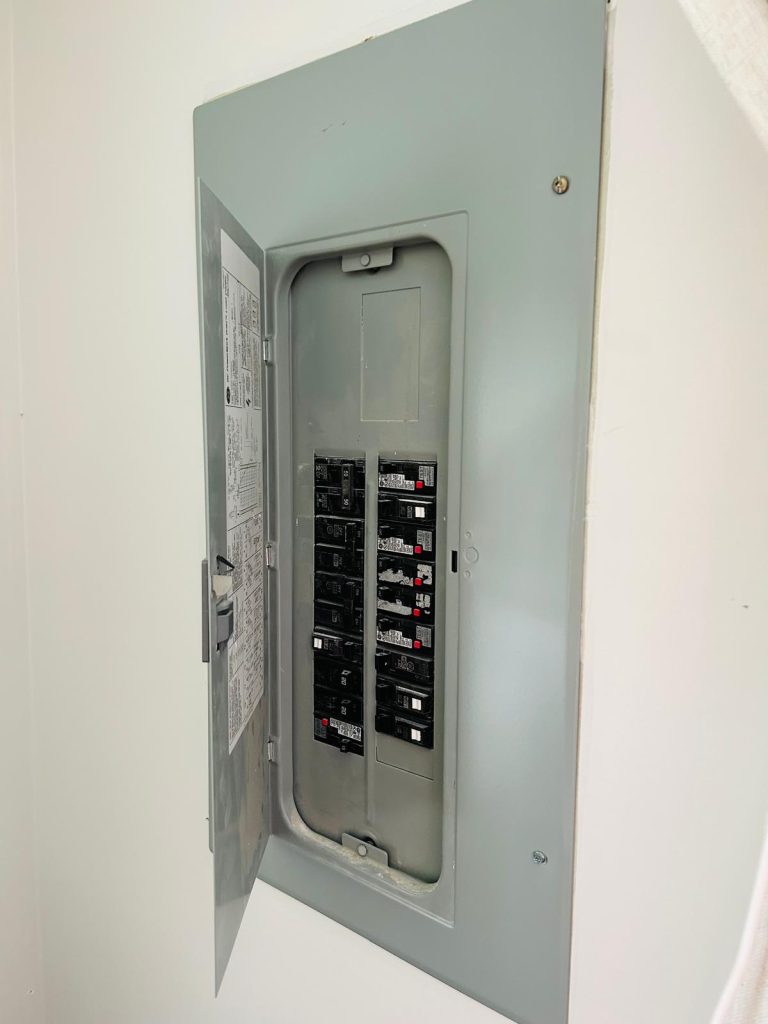It’s a familiar scenario: you turn on the microwave, plug in the vacuum, or run the hairdryer—and boom, the power goes out in part of your home. If your circuit breaker keeps tripping, it’s trying to tell you something important: there’s a problem with your electrical system that shouldn’t be ignored.
Let’s explore what causes breakers to trip, what it means for your home’s safety, and what you can do to fix it—or when to call in a professional.
First, What Is a Circuit Breaker?
A circuit breaker is a safety device that automatically shuts off power when it detects too much electrical current flowing through a circuit. Think of it like a traffic cop—it steps in to stop the flow and prevent overheating, electrical fires, or equipment damage.
A breaker that trips occasionally is doing its job. A breaker that trips often is waving a red flag.
Common Reasons a Circuit Breaker Trips
- Overloaded Circuit
This is the most common cause. Too many devices drawing power on the same circuit can overwhelm it.
Signs:
Breaker trips when you turn on a high-wattage appliance (like a space heater or microwave).
Multiple devices plugged into the same outlet or power strip.
What to do:
Unplug a few items and redistribute devices across different outlets.
Avoid running several high-powered appliances on the same circuit.
- Short Circuit
A short circuit happens when a hot wire touches a neutral wire or another conductive surface, causing a sudden surge of electricity.
Signs:
Breaker trips instantly after resetting.
You may smell burning or see scorch marks around an outlet.
What to do:
Stop using the circuit immediately. This can be a fire hazard.
Call a licensed electrician to diagnose and repair the issue.
- Ground Fault
This occurs when a hot wire touches a ground wire or grounded part of a device, causing the electricity to flow outside the intended path.
Signs:
Often happens in kitchens, bathrooms, or outdoor areas.
May trip a GFCI outlet or circuit breaker.
What to do:
Check for water exposure or damaged wiring near outlets.
If the area is damp or humid, moisture might be causing the fault.
Have an electrician inspect the affected area for safety.
- Faulty Appliance
Sometimes the breaker isn’t the problem—the appliance is. A damaged or poorly wired device can pull too much current or cause a short.
Signs:
Breaker only trips when a specific appliance is in use.
Appliance may feel hot or emit a burning smell.
What to do:
Stop using the appliance and test it on a different outlet.
Replace or repair the device if it causes consistent trips.
What You Shouldn’t Do
Don’t keep resetting the breaker without identifying the cause.
Don’t use extension cords as a long-term fix—they can create more risk.
Don’t ignore frequently tripping breakers—it’s more than just a nuisance.
When to Call an Electrician
If your circuit breaker trips more than once a month—or immediately after resetting—it’s time to bring in a professional. An electrician can:
Identify overloaded circuits and rewire or upgrade them.
Diagnose hidden wiring issues inside walls.
Replace faulty breakers or outdated panels.
Preventing Future Trips
Spread out high-draw appliances (hairdryers, toasters, space heaters).
Use dedicated circuits for large appliances like washers or air conditioners.
Avoid daisy-chaining power strips or plugging too many items into one outlet.
Schedule a home electrical inspection every few years, especially in older homes.
Final Thoughts
A tripping breaker is your home’s way of protecting itself from bigger problems. While it might feel like an inconvenience, it’s actually a valuable warning system. If you’re dealing with frequent breaker issues, don’t ignore it—take action. Sometimes, it’s a simple fix. Other times, it’s a sign that your electrical system needs serious attention.
Either way, your safety (and your peace of mind) is worth making that call.


